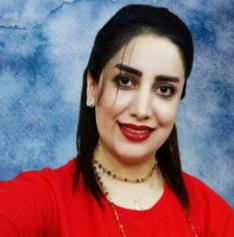Scholars International Webinar on
Cancer Research and Therapeutics
THEME: "Current Perspectives and New Challenges in Cancer Research and Therapy"
 23-24 Nov 2021
23-24 Nov 2021  ONLINE & VIRTUAL
ONLINE & VIRTUAL THEME: "Current Perspectives and New Challenges in Cancer Research and Therapy"
 23-24 Nov 2021
23-24 Nov 2021  ONLINE & VIRTUAL
ONLINE & VIRTUAL 
Monash University Malaysia, Malaysia
Title: Curcumin: spicy modular of key signaling pathways in triple negative breast cancer
Dr Reyhaneh is a scientist with keen interest in cancer biology and cancer therapy. Upon her PhD completion in Molecular Medicine in 2019, she has joined Jeffrey Cheah School of Medicine and Health Sciences (JCSMHS), Monash University (Malaysia), as Assistant Lecturer. Currently, she is working on determination and understanding the underlying molecular mechanisms of natural products and their derivatives contributing to their anti-cancer action through preclinical cancer models. She is enthusiastic to understand their key role in regulation of dysregulated signaling pathways in cancer with particular focus on breast cancer. Her certain unique set of skills, knowledge and experiences has led to several publications in internationally reputed high impact journals, being a reviewer of several top ranked journals and successfully grant achievements. Last but not the least, Dr Reyhaneh's dream is to make a difference in fighting against cancer and have a cancer-free world in near future.
Breast cancer is the world’s most prevalent cancer in 2020 and stands first in terms of incidence and mortality rates among women worldwide. Triple-negative breast cancer (TNBC), accounting for about 15%–20%, represents a hormone independent subtype of breast cancer in which ER, PR and human epidermal growth factor receptor 2 (HER2) are not expressed. TNBC is the most aggressive breast cancer subtype which is prone to earlier relapses and often metastasis to brain and lungs in diagnosed patients. It is difficult to treat and fails to respond to hormonal therapies or those targeting the HER2 receptors. Besides, breast cancer patients with TNBC are showing poorer overall survival rate and prognosis. Therefore, due to its aggressive nature, chemotherapy resistance and limited treatment options, the development of more effective and side effects lacking therapeutic agents are critically needed for TNBC management and treatment. In this regard, owing to the pharmacological safety and multitargetting action, curcumin, a bioactive component of turmeric spice, hold promise in TNBC therapy. The current study deepens and expands our knowledge of anti-breast cancer activity of curcumin by targeting various molecules and interfering with key signaling pathways, which leads to the regulation of cell survival and proliferation, metastasis, angiogenesis, cancer stem cell, and cell death in TNBC. A detailed understanding of curcumin multifunctional anticancer action may provide a framework for future studies and insights to improve its efficiency in clinical practice.?